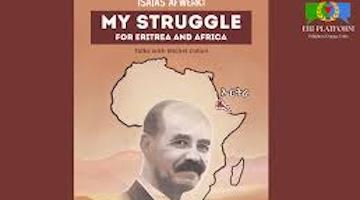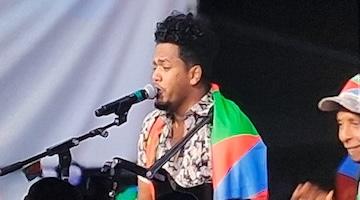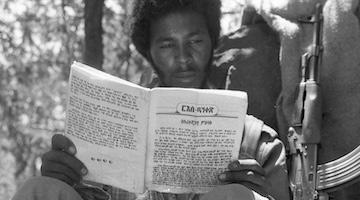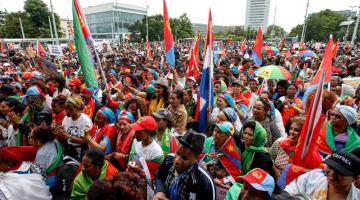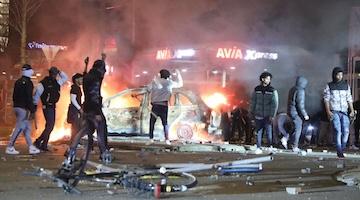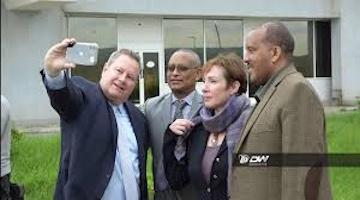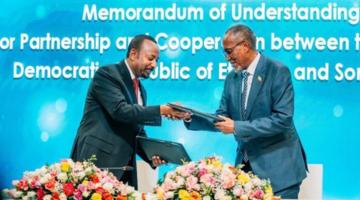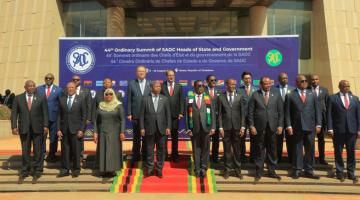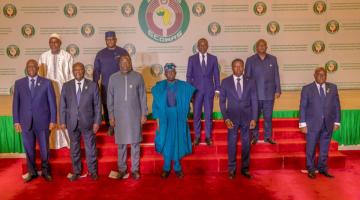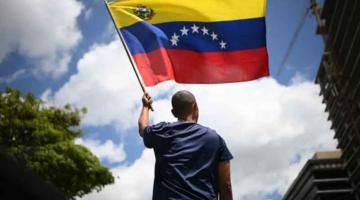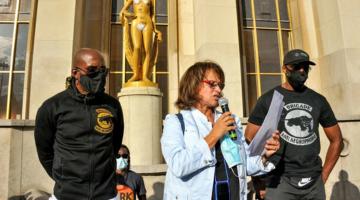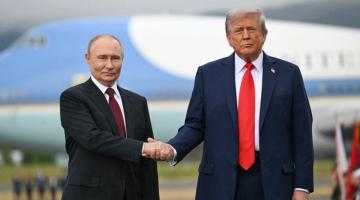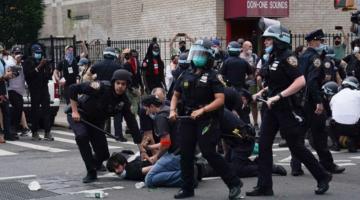Rally for Ethiopian sovereignty, Meskel Square, Addis Ababa, Ethiopia, 10.22.2022
War between Ethiopia and the TPLF may be coming to an end, but the US is using sanctions to have the final word despite the apparent defeat of its proxy.
The Ethiopian and Eritrean armies now seem close to winning a two-year war with the Tigray People’s Liberation Front (TPLF,) a US-backed clique that ruled Ethiopia brutally for 27 years, from 1991 to 2018. As I write this, on October 24, 2022, Ethiopian and Eritrean forces are in control of most major cities in Ethiopia’s Tigray Region. They are reported to have surrounded Mek’ele, the Tigrayan Region’s capital, but it’s not clear whether or not they are inside.
On Saturday, October 22nd, huge crowds rallied for Ethiopian sovereignty in Addis Ababa and across the country, holding up signs that read “No More to a Proxy War,” “USA Respect Ethiopian Sovereignty,” and “No Intervention in the Name of Humanitarian Aid.” Establishment outlets including the Associated Press and Bloomberg News felt compelled to report the rallies.
The West, most of all the US, has given political, diplomatic, and narrative support to the TPLF throughout the war, and now they’re scrambling. UN Secretary General António Guterres and Western officials and NGOs keep calling for a “cessation of hostilities,” which seems to be a demand that Ethiopia and Eritrea stop short of victory.
Every day the propagandistic attacks on both Ethiopia and Eritrea become more shrill and extreme. Former US diplomat Elizabeth Shackelford wrote, in the Chicago Tribune, “[Anonymous] sources from the area claim Ethiopian and Eritrean forces (their allies) have been instructed to kill three Tigrayans each, including elderly and children, and that victims’ limbs and skulls are on display.”
Peace talks are set to begin in Pretoria, South Africa, on Tuesday, October 25, 2022 and Reuters reports that the TPLF delegation has arrived on a US military aircraft, accompanied by Mike Hammer, the US special envoy to the Horn of Africa.
One sign held high at Saturday’s rally in Addis Ababa read, “We Oppose HR 6600 and S 3199 Bills.” These are the sanctions bills that have been hanging over Ethiopia and Eritrea’s head for nearly a year. Earlier this year, I spoke to people in internally displaced persons camps in Amhara Region, Ethiopia, who knew that the US was threatening them with these sanctions bills.
HR 6600 is the House bill, S 3199 the Senate bill. S 3199 has been revised to be even more threatening than it was when New Jersey Senator Robert Menendez introduced it in November 2021, and he recently resolved to push for its passage.
I spoke to John Philpot, international criminal defense attorney and researcher and activist with the Sanctions Kill Coalition, about S 3199.
Ann Garrison: The revised Menendez Senate bill, S 3199, proposes sweeping sanctions to control every aspect of Ethiopian society, its economy, its politics, and even information shared in any public forum, including social media. It's very similar to the House bill, HR 6600, but even more draconian in its current version. What are your thoughts after reading it?
John Philpot: Well, it is a form of full, all-out neocolonial policy. If you read between the lines, it's all about stopping Ethiopia from getting beyond the realm of US hegemony.
The other thing they want to stop is Eritrea's engagement with Ethiopia in this war. And we will recall that Ethiopia's de facto war with Eritrea was ended when Mr. Abiy came to power in 2018. He made peace with Eritrea and won a Nobel Peace Prize for doing so. These two nations are now allies, and Ethiopia has a right to ask Eritrea to help.
The US wants to impose itself as a facilitator in the negotiations, and it’s hanging sanctions over Ethiopia’s head to push for that. But this is a no-go because the US is not neutral. We all know that the US supported the TPLF government from 1991 to 2018, and throughout this 2020-2022 war.
The bill is also very broad in its definition of who the US can sanction. It talks about secondary sanctions punishing other countries willing to break the sanctions.
They also give themselves power to oppose international loans to Ethiopia. And we all know that one of the ways in which countries finance their development is by borrowing money from the international banking institutions. Whether we like it or not, this is one way in which developing countries function.
So it's a very strong intervention.
We don't know exactly why, but it seems that they're upping the ante right now. The previous version of the bill recognized the legitimacy of the change of government in 2018. The current version doesn't even talk about that. It may be a sign of desperation by the USA, since the Ethiopian and Eritrean armies are winning, but it's very dangerous.
AG: The TPLF attacked both Ethiopia and Eritrea, at the outset of the war, and the two countries’ armies have been fighting together for the past two years. One of the Menendez bill’s first demands is that, "The government of Eritrea must immediately and completely withdraw its military forces from Ethiopia." Don't Ethiopia and Eritrea have a right to collective defense, codified in Article 51 of the UN Charter?
JP: Yes, but it's more than that. The right to self-defense is an inherent right of any country. And when the Charter talks about Security Council intervention, it says that the Security Council intervention cannot be done in a case of self-defense.
We have noted, for example, Syria, whose government asked Russia to intervene in September 2015. The US knows very well that Russia is in Syria legally, to help the Syrian government. Ethiopia also has full sovereign rights to ask Eritrea to join in their fight for national sovereignty.
AG: The TPLF also attacked Eritrea at the beginning of the war.
JP: Yes, that adds to the argument, of course, and that gives them the right to fight the TPLF, but whether that had happened or not, Ethiopia would be within its rights to ask Eritrea to join its fight.
AG: The bill would require the State Department to report to Congress as to whether parties to the conflict are guilty of genocide, crimes against humanity or war crimes. Doesn't this mean that the US government would be usurping the UN Security Council's jurisdiction over international crimes?
JP: Yes, in many ways that’s exact, although it's more than that. If there is a threat to international peace, or if they believe a genocide is happening, the Security Council has the right to take coercive measures if all five permanent members agree. But the US has no right to judge that Ethiopia or Eritrea are guilty of genocide; that is not only assuming the UNSC’s jurisdiction but also intervening in the sovereign affairs of Ethiopia or Eritrea. It's totally illegal.
The US is using human rights to intervene in Ethiopia and Eritrea's internal affairs. And this has been something they've been doing for a long time, but particularly since 1990. You know the history of the wars in Yugoslavia and Rwanda.
One thing repeated throughout this Senate bill and its previous version is the demand for unfettered access to deliver humanitarian aid, but we know that humanitarian aid convoys can be used to transport arms, so it’s totally reasonable for Ethiopia to demand that they go through checkpoints.
We have a major conflict underway in Ukraine, and this conflict over Ethiopia and Eritrea is one of the second most important in the world right now.
There's no agreement about it on the Security Council, because Ethiopia is trying to develop itself and assert its sovereignty. The US won't tolerate that, but Russia and China will defend it. Remember that from 1991 to 2018, Ethiopia was basically controlled by the US through its puppet the TPLF.
Now Ethiopia is trying to be truly independent. They want to deal with Russia, with China, with the United Arab Emirates, and with other nations not under US control.
AG: Some of the most frightening measures in the bill are those about information control. These are specific instances of the US and its Western allies’ broader, ongoing efforts to control information. At one point, the bill says it's going to "ensure the government of Ethiopia respects the rights of all Ethiopians to free expression and political participation," but then it says that it's targeting anyone who "spreads disinformation, to further the civil conflict or incite anti-American sentiment in Ethiopia." And that includes the Ethiopian diaspora.
This is obviously a violation of Ethiopia's sovereignty and the civil liberties of American citizens. What are your thoughts about that?
JP: Well, what they're saying to Ethiopians and Eritreans and to citizens or residents of any other nation, including the US, Canada, and European nations, is that they have the right to speak so long as they don't go against the stance of the US foreign policy establishment. Do that and then you can be sanctioned or repressed. This is now the US approach to freedom of information.
AG: Is there anything else you'd like to say?
JP: Yes. One of the biggest flaws in this bill is that it treats the TPLF and the Ethiopian government as equals. Ethiopia is a sovereign nation and its army is fighting this uprising within its own borders, which is probably inspired from outside the country. The TPLF is not a sovereign nation, so you cannot treat them as equals.
Ann Garrison is a Black Agenda Report Contributing Editor based in the San Francisco Bay Area. In 2014, she received the Victoire Ingabire Umuhoza Democracy and Peace Prize for her reporting on conflict in the African Great Lakes region. She can be reached at ann(at)anngarrison.com.

